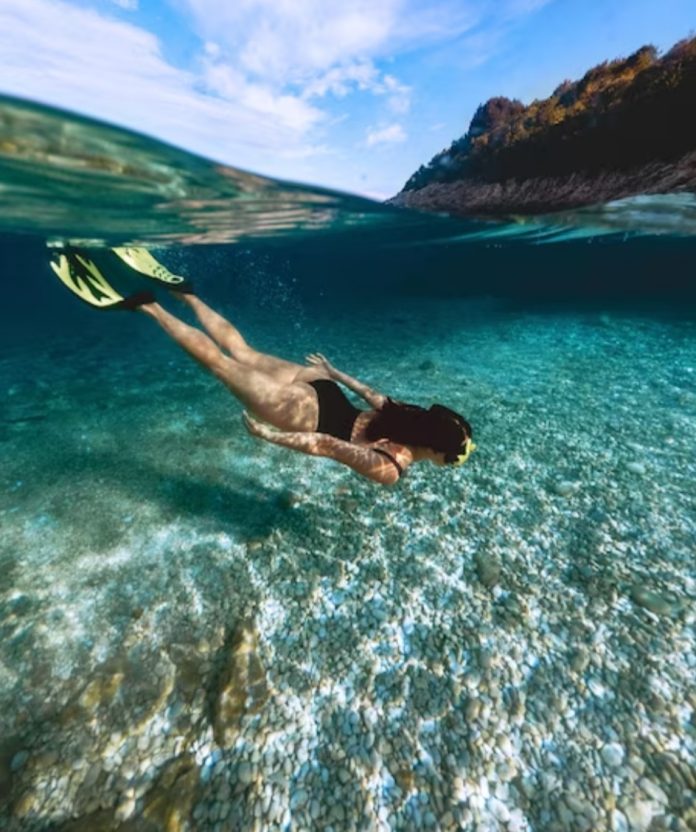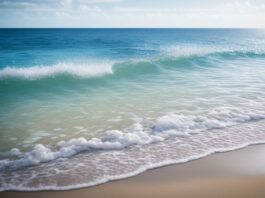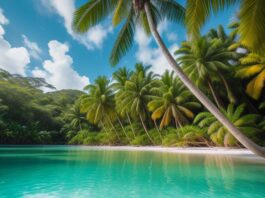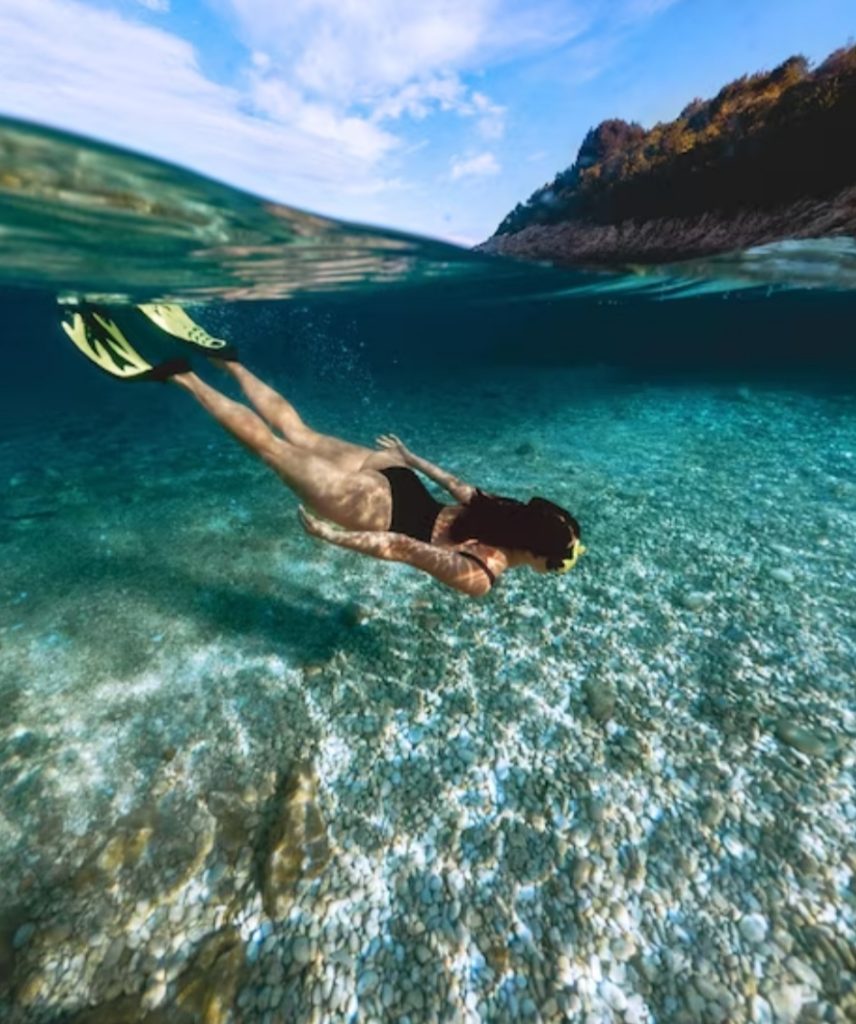
Table of Contents
Dive into the waters of the world Fiji, a tropical paradise nestled in the South Pacific Ocean, is a dream destination for travelers seeking stunning natural beauty, vibrant marine life, and a taste of the South Pacific culture. With its crystal-clear waters, lush rainforests, and friendly locals, Fiji offers a unique blend of adventure and relaxation. In this comprehensive guide, we’ll take you on a journey to explore the exotic waters of Fiji, from its world-renowned scuba diving sites to its pristine beaches and rich cultural heritage.
Table of Contents
- Introduction
- Geography and Climate
- Marine Biodiversity
- Scuba Diving in Fiji
- Snorkeling Adventures
- Island Hopping
- Cultural Experiences
- Cuisine and Dining
- Accommodations
- Getting to Fiji
- Best Time to Visit
- Travel Tips
- Conclusion
- FAQ
1. Introduction
Fiji, an archipelago of more than 330 islands, offers an unparalleled opportunity to immerse yourself in the wonders of the South Pacific. Known for its breathtaking coral reefs, diverse marine life, and warm, inviting culture, Fiji has earned its reputation as a top destination for water enthusiasts and nature lovers alike.
2 Dive Into The Waters Of The World Geography and Climate
Dive into the waters of the world Fiji’s geographical diversity is a key factor in its appeal. The islands are divided into two main groups: the larger Viti Levu Group, where the capital city of Suva is located, and the smaller Mamanuca and Yasawa Islands to the west. Each group offers its own unique charm.
The Fijian climate is characterized by warm temperatures throughout the year. The wet season typically occurs from November to April, with occasional tropical cyclones. The dry season, from May to October, boasts cooler temperatures and lower humidity, making it the most popular time for tourists.
3. Marine Biodiversity
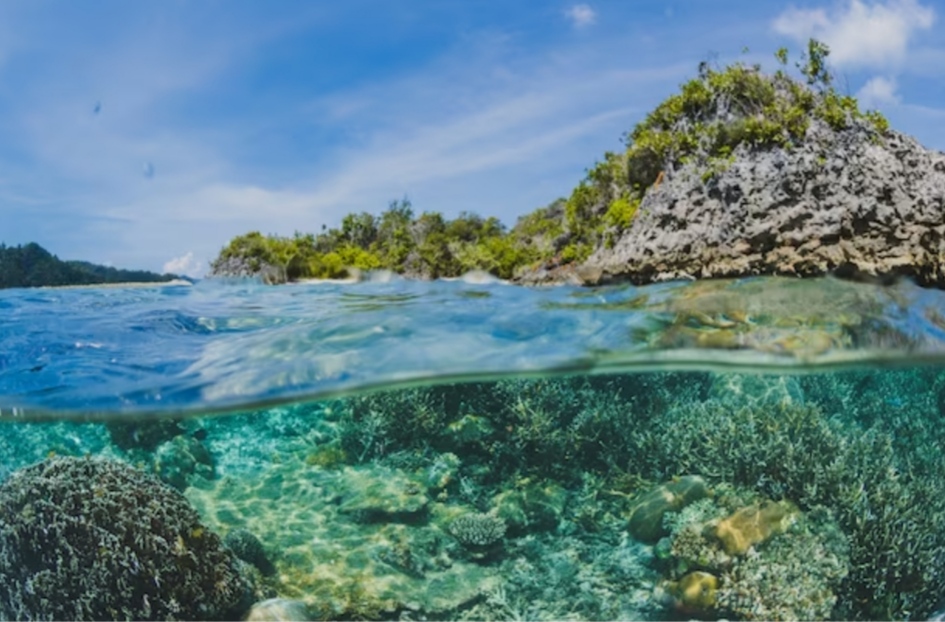
dive into the waters of the world Fiji’s are teeming with a remarkable variety of marine life. The region is part of the Coral Triangle, a hotspot of biodiversity in the Pacific Ocean. Snorkelers and divers can expect to encounter colorful coral gardens, schools of tropical fish, rays, sharks, and even the elusive manta rays and whale sharks.
The islands’ conservation efforts, such as marine protected areas and shark sanctuaries, have helped preserve this incredible underwater world, ensuring future generations can also enjoy its beauty.
4. Scuba Diving in Fiji
Dive into the waters of the world in Fiji is an experience like no other. Whether you’re a beginner or an experienced diver, there are sites suitable for all skill levels. Some of the most renowned dive sites include:
a. Rainbow Reef
Located in the Somosomo Strait near Taveuni, Rainbow Reef is famous for its vibrant soft coral formations. Divers can expect to encounter colorful anthias, sea fans, and numerous reef fish. The “Great White Wall,” a sheer drop covered in white soft coral, is a highlight of this site.
b. Beqa Lagoon
Beqa Lagoon, off the southern coast of Viti Levu, is known for its shark encounters. Shark dives here offer the chance to see bull sharks, tiger sharks, and even hammerheads. The thrill of diving alongside these majestic creatures is an unforgettable experience.
c. Namena Marine Reserve
Namena Island, a protected marine reserve, boasts crystal-clear waters and a thriving coral reef system. Divers can explore underwater caves, swim-throughs, and an abundance of marine life, including barracudas, turtles, and reef sharks.
d. Bligh Water
Bligh Water, situated between Viti Levu and Vanua Levu, is a haven for drift diving. Strong currents sweep through underwater pinnacles and canyons, creating an exhilarating underwater adventure. The vibrant coral formations and diverse marine life make this area a must-visit for divers.
5. Snorkeling Adventures
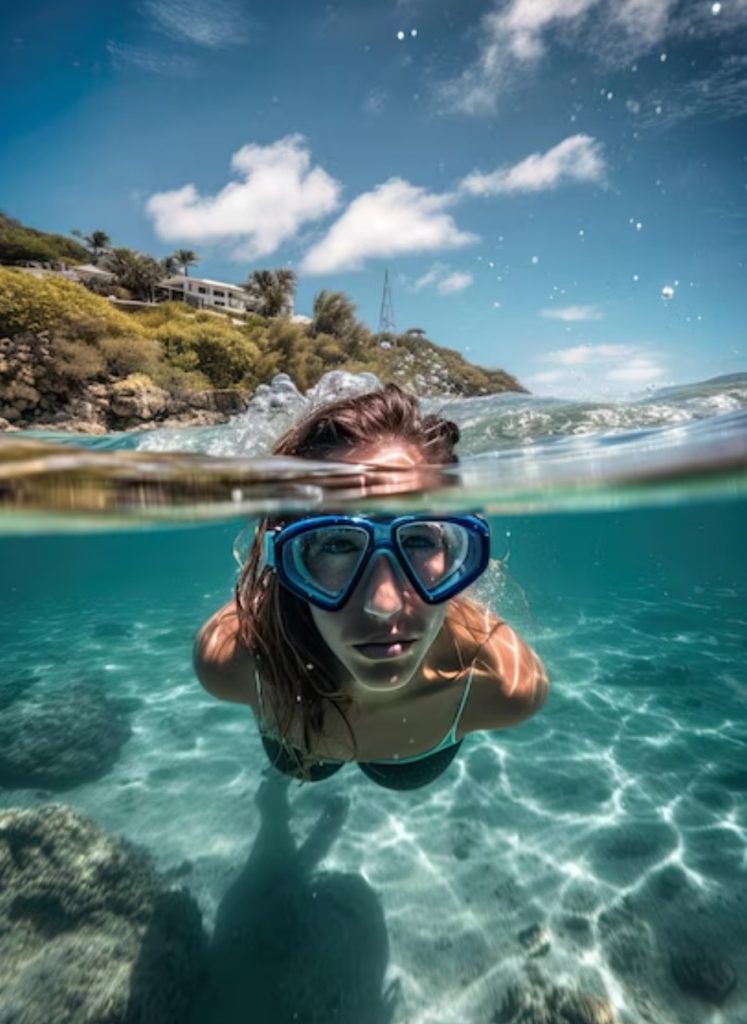
If scuba diving isn’t your forte, Fiji offers equally stunning snorkeling opportunities. Many resorts have house reefs that are easily accessible for snorkelers, and snorkeling equipment can be rented on-site. Some popular snorkeling spots include:
a. Coral Coast
Fiji’s Coral Coast is home to numerous snorkeling sites, including Sigatoka Sand Dunes and Natadola Beach. Here, you can explore colorful coral formations and swim alongside tropical fish in relatively shallow waters.
b. Tivua Island
Tivua Island, located in the Mamanuca Islands, is a pristine snorkeling destination. The island’s protected marine sanctuary ensures vibrant coral gardens and abundant marine life, making it a perfect spot for snorkeling adventures.
c. Savusavu Bay
Savusavu Bay on Vanua Levu offers calm and clear waters, ideal for snorkeling. You can spot colorful fish, coral formations, and even the occasional turtle while snorkeling in this beautiful bay.
6. Island Hopping
One of the joys of visiting Fiji is the ability to explore its many islands. Island hopping allows you to experience the diverse landscapes and cultures that each island offers. Here are some of the must-visit islands:
a. Yasawa Islands
The Yasawa Islands are known for their stunning white sandy beaches and rugged terrain. These islands provide the perfect backdrop for relaxation, adventure, and cultural immersion.
b. Mamanuca Islands
The Mamanuca Islands are famous for their luxury resorts, crystal-clear waters, and vibrant coral reefs. They are easily accessible from Nadi, making them a popular choice for day trips or longer stays.
c. Vanua Levu
Vanua Levu, Fiji’s second-largest island, offers a more laid-back and authentic Fijian experience. Explore its lush rainforests, visit traditional villages, and soak in natural hot springs.
d. Taveuni
Taveuni, often referred to as the “Garden Island,” is a haven for nature lovers. Hike through lush jungles, visit waterfalls, and dive into the Somosomo Strait to witness the stunning underwater world.
7. Cultural Experiences
Fiji’s culture is deeply rooted in tradition, and visitors have the opportunity to engage in unique cultural experiences. You can partake in traditional kava ceremonies, attend lively meke dances, and visit local villages to learn about Fijian customs and daily life.
The Fijian people are known for their warm hospitality and friendly nature, making cultural interactions a highlight of any trip to Fiji.
8. Cuisine and Dining
Fijian cuisine is a delicious blend of flavors influenced by Indian, Chinese, and European culinary traditions. Don’t miss the chance to savor Fijian specialties such as kokoda (marinated fish), lovo (earth oven-cooked meats and vegetables), and roti (Indian flatbread).
Most resorts offer a range of dining options, from traditional Fijian feasts to international cuisine. Dining with an ocean view is a common treat, adding to the overall dining experience.
9. Accommodations
Fiji caters to a wide variety of travelers such as dive into the waters of the world, offering accommodations to suit every budget and preference. You can choose from luxury resorts, boutique hotels, eco-friendly lodges, and even budget-friendly hostels. The quality of service and breathtaking locations are consistent across the board.
Many resorts in Fiji offer all-inclusive packages, including meals, water
sports, and cultural activities, making it convenient for travelers to relax and enjoy their stay.
10. Getting to Fiji
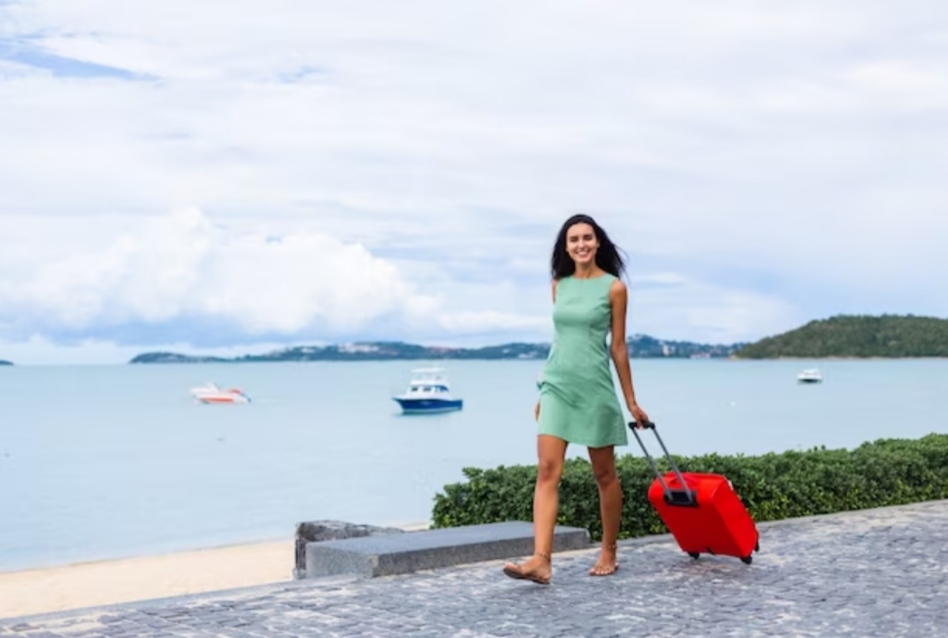
Getting to Fiji is relatively straightforward, with international flights arriving at Nadi International Airport and Nausori International Airport in Suva. Major airlines, including Fiji Airways and international carriers, operate regular flights to Fiji from destinations worldwide.
11. Best Time to Visit
The best time to visit Fiji depends on your preferences. The dry season, from May to October, is the most popular time for tourists due to the pleasant weather. However, if you prefer fewer crowds and don’t mind occasional rain showers, the wet season from November to April offers its own charm, with lush landscapes and vibrant marine life.
12. Travel Tips
- Currency: The currency used in Fiji is the Fijian dollar (FJD). Credit cards are widely accepted, but it’s a good idea to carry some cash for smaller purchases.
- Health Precautions: Check with your healthcare provider for recommended vaccinations before traveling to Fiji. It’s also essential to have travel insurance that covers medical emergencies.
- Respect Local Customs: When visiting villages and participating in cultural activities, dress modestly and remove your hat before entering a village.
- Environmental Responsibility: Fiji places a strong emphasis on environmental conservation. Help preserve the natural beauty by practicing responsible tourism, such as reef-safe sunscreen and avoiding single-use plastics.
13. Conclusion
Fiji is a slice of paradise in the South Pacific, offering a harmonious blend of natural beauty, diverse marine life, rich culture, and warm hospitality. Whether you’re an adrenaline junkie seeking underwater adventures, a beach lover in search of relaxation, or a traveler eager to experience a unique culture, Fiji has something to offer everyone.
From the enchanting coral reefs to the lush rainforests and welcoming smiles of the Fijian people, Fiji invites you to dive into its exotic waters and immerse yourself in an unforgettable experience.
14. FAQ
Q1. Is Fiji safe for travelers?
Fiji is generally a safe destination for travelers. The Fijian people are known for their friendliness and hospitality. However, like any travel destination, it’s essential to take common-sense precautions and be aware of your surroundings. Petty theft can occur in tourist areas, so it’s advisable to secure your belongings.
Q2. What’s the official language in Fiji?
English is the official language of Fiji, and Fijian (iTaukei) and Hindi are also widely spoken. English is commonly used in tourist areas, making communication relatively easy for English-speaking visitors.
Q3. Do I need a visa to visit Fiji?
Fiji offers visa-free entry for many nationalities for stays of up to 4 months. However, it’s essential to check the specific visa requirements for your country before traveling.
Q4. Are there any cultural customs I should be aware of?
When visiting villages or participating in cultural activities, it’s respectful to dress modestly and remove your hat before entering a village. Additionally, it’s customary to bring a gift, such as kava root, when visiting a village.
Q5. What’s the currency in Fiji, and can I use credit cards?
The currency in Fiji is the Fijian dollar (FJD). Credit cards are widely accepted in hotels, resorts, and larger establishments, but it’s advisable to carry some cash for smaller purchases, especially in more remote areas.
Q6. Is it safe to drink tap water in Fiji?
While tap water in most urban areas of Fiji is treated and safe to drink, it’s recommended to drink bottled water, especially in more rural or remote areas, to avoid any potential stomach discomfort.
Q7. What’s the voltage and plug type in Fiji?
Fiji uses a voltage of 240V and the Type I electrical plug, which has three flat pins in a triangular configuration. If your devices have a different plug type, you may need a plug adapter.
Q8. Are there any environmental regulations I should be aware of when visiting Fiji?
Fiji places a strong emphasis on environmental conservation, particularly when it comes to protecting its coral reefs and marine life. Use reef-safe sunscreen, avoid touching or standing on coral, and avoid single-use plastics to help preserve Fiji’s natural beauty.

